Have you ever wondered what all goes into opening a Disney Theme Park? Knowing the eyes of the world are upon you, and 10,000 people are ready to descend for dinner? I was able to sit down and talk with two friends of the DIS Unplugged: Lee Cockerell, former Executive Vice President of Operations for the Walt Disney World Resort, and Pamela Landwirth, President of Give Kids The World. They were both part of the opening team for Disneyland Paris, at that time EuroDisney, and they agreed to share some of their experiences in the opening of that theme park. You can listen to my complete interview with Lee Cockerell and Pamela Landwirth after the break, or follow along with the transcript for images from Disneyland Paris.
Click here to listen to the interview with Lee Cockerell and Pamela Landwirth.
Dave Parfitt (DP): Lee, could you describe your role at Disneyland Paris?
Lee Cockerell (LC): I was originally hired to be director of food and beverage for the resort group, the hotels. I joined Disney in July of 1990, came to Walt Disney World, did 6 weeks of training to understand the company as best I could, and then I went to France. My job was to get the restaurants organized and opened. I spent the first year running around the world, literally, hiring a couple hundred managers and chefs and restaurant managers and purchasing people. Hopefully, trying to find people that spoke French, and we got a lot of great people. And the year before opening – trying to get the processes, procedures, and operating guidelines written, and then start doing the training. It was not as easy as trying to open something at Disney World because nobody had ever worked for Disney over there before. 99% of the people who ended up at management there were working their first time with Disney. That was different.
We did everything in 5 languages, even staffing the front desk we had to make sure we had someone from each language on the front desk. To check in the people from Spain or Italy…
DP: So you had English, French, Spanish, Italian, and German…
LC: Yes, the menus were in 5 languages, all the guest information had to be printed in 5 languages. It was different. It was great. I enjoyed it; we lived in France for 3 years. I learned a lot. I think everybody ought to live in a foreign country. I found out how it feels to be illiterate living there. I used to say it was pressure to stop and get gas. I was afraid the guy would start talking to me. Good thing about France, they don’t talk too much. You just get your gas and leave and say “bonjour”… “merci”… that’s it.
Pamela Landwirth (PL): Oh, you’re still fluent, I see?
LC: Oh yeah, even my wife would give me notes. She speaks French, and she’d write a note for me and I’d go to the store and hand it to the guy. I felt like a little kid… “My mother said to get these things.”
DP: Pam, when were you brought on board?
PL: I came over in January of ’92 and stayed through June of ’92. I was there for the pre-opening activities for all the resort Cast Members, all the test meals, and all the training and development.
LC: We didn’t open until April.
PL: Yeah, and the last one to open was Disney’s Sequoia Lodge. It was a little behind schedule.
LC: They wouldn’t have opened without the Disney World people. Hundreds of them came, and, really, their expertise saved them. Everything from checking the baggage, opening day they had 10,000 bags they had to organize…
PL: Everything was different. I remember we got down to the part where we were actually going to start test meals and realized the general managers had not started hiring their staff yet. That’s when we started getting pulled into the hiring process and recruiting process. It was totally different style.
LC: Just the pre-meal training, just for practice, I think we did 92,000 test meals. We had to have a little coupon for each person to present, and…
PL: You’re used to doing test meals over here and everybody just knew what to do. I remember it was at “Festival Disney” (now Disney Village), and we’re doing test meals there and we walk in and you have to order all these different things. Everybody around the table is ordering different things to see how the service is, and then we have to order dessert. I ordered something that was supposed to have ice cream in it. I’ll never forget this. I took a bite of it and thought “this has the weirdest consistency”. It’s not frozen. It’s not cold. It’s very strange. We called the chef over and he said “Well, we didn’t get our ice cream order in.” So it was lard. It was a big glob of lard. (laughing) We said, “Well, don’t you think we’re going to taste this stuff?” To which the chef replied, “No, no, no, it’s just for show.”
DP: Were the foods that were in the park, were they predominantly American foods?
LC: Yeah, they were American, but that changed not long after opening because the French really wanted more French food.
PL: and wine…
LC: That’s right. The restaurants were great, everything was great. A lot of people loved it, but it was mainly American style restaurants (on Opening Day).
DP: What do you think were some of the unique attributes of EuroDisney in comparison to Walt Disney World in Florida?
PL: From our standpoint, I think it was the work ethic. You come here (Walt Disney World) and you work 23 hours a day if you have to, you just work round the clock because you set an opening date and you get it and you just work. I think the amazing thing to us was the culture, the laws, they work, what? 39.5 hours/week, they don’t work overtime, they take 2 hour lunches… So we’re all there in our Type A personality, OK, April’s coming, we’re going to make this happen, and after their 2 hour lunches and 39.5 hours/week, you guys don’t understand, we have a park to open.
LC: And the Disney work ethic is even bigger than the American work ethic.
PL: You do what it takes to get an opening. You don’t have your lunch hour. We’re working through lunch, we’re working like mad men, and it was just an interesting dynamic. We all thought, this is the way to live. We’re going to adopt this when we go back, and that lasted, maybe through the plane ride home
LC: It’s not in your genes. There were a lot of good things too. The park, the hotels, the way everything is right there. You can walk everywhere. There’s no having to park your cars and get onto buses. It’s a very tight location. It was very close to Paris. It was a gorgeous place.
PL: It’s still one of the prettiest parks. Really one of the most charming parks, beautiful castle. The castle itself is amazing.
DP: Before the park opened there were a number of protests by the farmers and the French labor unions. Was this part of what you were talking about Pam with the difference in work ethic and having to deal with union labor forces?
PL: More it was the work style. The farmers, that’s not something that we had to get into.
LC: Some of those demonstrations were against the government and not against Disney. They just used Disney to get the publicity. They were striking against a lot of other things, taxes and work week. They blocked the entrance one morning with all their tractors and came across the fields.
DP: What do you remember about Opening Day?
LC: It was a long day, literally. We started in the morning, and we had 10,000 guests for that evening. We were putting up buffets, and I think we bought every shrimp and every strawberry in Europe. Massive food displays outside of every hotel and in the parks. 10,000 people coming for dinner, you had to get all that set up, execute it, and then clean it up. So we were up all day and all night, and having a place to clean up after 10,000 people sweep through it was a long, long day.
PL: It was flawless. It was just like everything that Disney does. It’s like that analogy of the duck where it’s smooth on top [of the water], but underneath it’s paddle, paddle, paddle. Everything just comes off beautifully. Because everybody pulls together at the end across all lines, and thinks we’re here we’re going to keep the Disney name intact, it’s going to be fabulous, and it was beautiful. It was wonderful. With all those different challenges leading up to it, opening night is always this incredible “wow”. You don’t want to analyze how you actually got to that point – because it’s magic. “How did this happen?” You almost forget all that effort and all that work. Because to see the kids and to see it come to life is just something.
LC: I’m glad I did it.
DP: When the park opened, there was no alcohol in the Magic Kingdom. I imagine there was no smoking. How did that go over?
LC: Smoking was still OK. We hadn’t even put designated smoking areas at Walt Disney World until 1995.
PL: There wasn’t wine because that was the biggest challenge.
LC: It hurt the restaurants because people there won’t have dinner without a glass of wine. They’ll walk out and go to a hotel.
PL: Within that first year that policy was changed and they started serving wine within the park.
DP: The first couple years of the park, attendance was below what the projections were. Why do you think it took so long for the resort to catch on with the public? I’ve read that now, Disneyland Paris is one of the, if not the, top tourist attraction in Europe.
LC: I think two things happened. You put a lot of hype out there so everyone thinks everything is going to be jammed, and they don’t go. That’s one thing. The other thing, we were in a recession. Same old story, it happened at Walt Disney World, nothing was going right at first; Disneyland [in California] didn’t go right at first; same thing there [in Paris]. I think it was just overhyped. “It’s going to be massive. It’s going to be busy; you’re going to back up traffic…” And Disney’s not as well known there. I imagine 80% of the French people or more have never even been to Disney before. They don’t really travel outside of France like the UK does. So they didn’t have an exposure to it. The kids didn’t know the characters. It’s a learning process to appreciate Disney like we do.
PL: Travel’s a lot more expensive over there internally. I was surprised it’s actually cheaper to fly from America to some of these spots [in Europe] than it was to fly to them from Paris. For example, at Give Kids The World, for families from Great Britain here at the Village it’s still cheaper for them to send the families to Walt Disney World and the Give Kids The World experience than it is to send them to Disneyland Paris. Internal travel is just very costly over there. I think all that had an impact on those openings.
LC: And the pricing, people in Europe don’t spend the same amount of money for disposable income like we do here. They don’t spend as much for merchandise, food, and hotel rooms. They don’t take their kids out of school to go to Disney like they do here, and they probably never will. That’s why they have big dips in business.
DP: Do you think there were some anti-American sentiments at first when it opened?
LC: Sure, around the world there’s anti-American sentiment.
PL: Well, you have to be careful when you take an American company, you go in, it’s going to be run like an American company, and have American food, and anywhere around the world you’re going to have some backlash. But, I think, predominantly in France, with their strong culture and things like that…
LC: McDonald’s is doing more in France. There’s a lot of people that hate McDonald’s.
PL: There’s a lot more French people involved in the operation. It just takes a while to warm up. People don’t like change, and they find out, “Oh, this is great, this is good change, this is fun. They haven’t changed the landscape that much. They’ve brought something really wonderful into our area.”
DP: Do you have a favorite memory of that time? When you look back at those years you spent in Paris? One thing that sticks out?
LC: I do. The day my son called me from the lobby of the New York Hotel because I was the manager on duty that weekend and he said he wanted to come up and talk to me. And he came in and told me he was getting married to Valerie. And I said, “Well, where’s Valerie?” He said, “She’s in the lobby.” I said, “Why don’t you get her up here and let’s call your Mother.” Priscilla’s in the U.S., let’s tell her.
PL: You had both met Valerie at the time?
LC: Oh yeah, several times. He said he was going to propose to her in front of the Eiffel Tower, but they had a glass of wine and he did it in front of the refrigerator at home. He got too nervous. So that’s my memory, we got a daughter-in-law out of it, and three nice little grandchildren. That was a special time there.
PL: I think it was the camaraderie. We lived in the campground when we were there – so we lived in trailers while we were there for the 6 or 7 months, and you had a real spirit around there because you had to rely on the people. When you go to the grocery store and you’re trying to pay with a traveler’s check and you realize at first they don’t give you change for a traveler’s check, and that’s a real eye-opening experience. Even though you want the different experiences you want to have home around you too. That’s what the campground was, you had all these people over there who were uprooted from family, and you had that thing where you knew you could always call home to Disney and they would send whatever you wanted. When you’re part of Disney, you’re part of this incredible family that’s not going to let another part of Disney fail. No matter if you are in Orlando, if you’re in Anaheim, you’re in Tokyo, you’re not going to let somebody else fail. When we were over there, all eyes were on France. Whatever you need, we’ll send you this, we’ll send you that. You never felt alone, and that’s part of the magic of Disney – it’s a family. To have that camaraderie of the 100+ people that were there, and you knew it was because we all had our beige, London Fog trenchcoats that we were all wearing. It was the first time I ever saw a park in snow – which was really cool. I don’t know, that’s what made Disney special, that’s what made this experience special because you just know you’re not alone, and failure is not an option.
LC: It was a great experience.
PL: Do it again…
LC: I’d do it again too… fabulous…
DP: Have you been back?
PL: Yeah, many times…
LC: I’ve been back several times, yeah… The night my son got married they stayed at the Disneyland Bridal Suite. Had their dinner in the Eiffel Tower…
PL: Beautiful hotels… I think we brought a little bit of fun to them too – because I think some of the pre-opening activities, we brought over an entertainer who wrote songs for every opening, and we had this big party and food for the staff to get them all pumped up about it. I don’t think that’s something that they’re used to. It’s that whole Disney philosophy of training, communication, and care – take care of your people and they’ll take care of the guests. Introducing that philosophy into Europe I think was probably a little bit of a challenge but a refreshing kind of change.
“You’re doing a party for us?”
“Yeah, we want you to get excited about this.”
Tee-shirts for every opening, and gifts, and just a lot of fun.
LC: Oh, we changed a lot of their lives.
DP: I’d like to thank Pamela Landwirth and Lee Cockerell for taking the time to sit down and talk to us about their experiences at Disneyland Paris.
PL: Our pleasure, our pleasure…
DP: This is David Parfitt signing off for the DIS Unplugged.
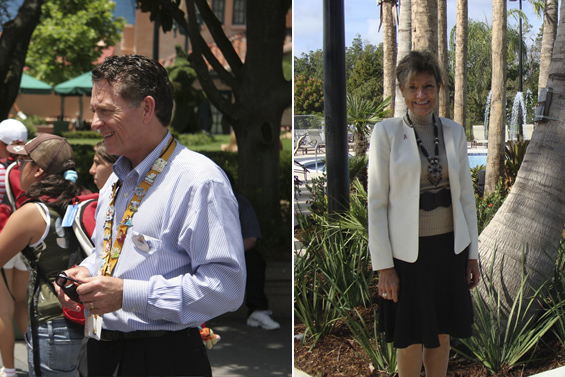
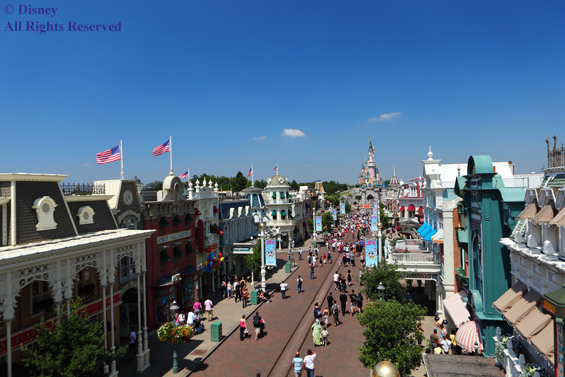
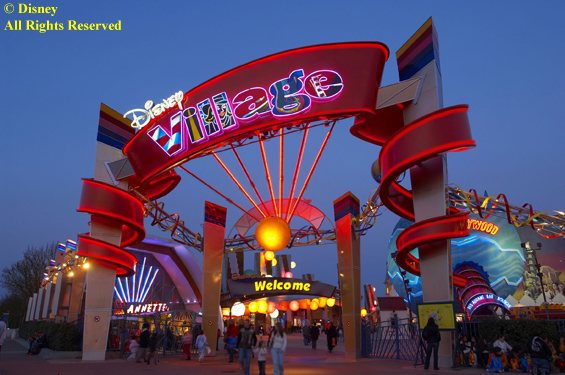
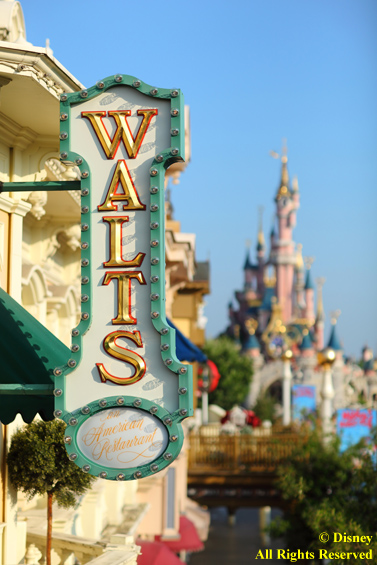
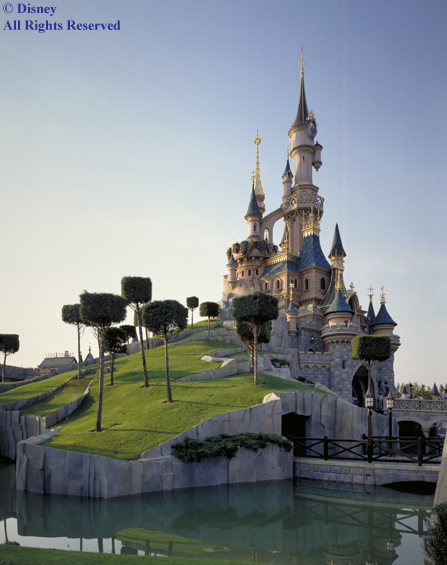
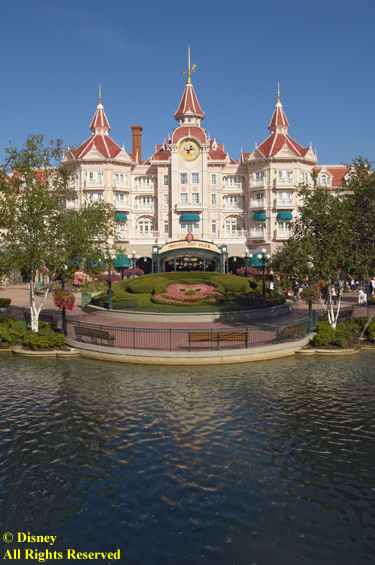
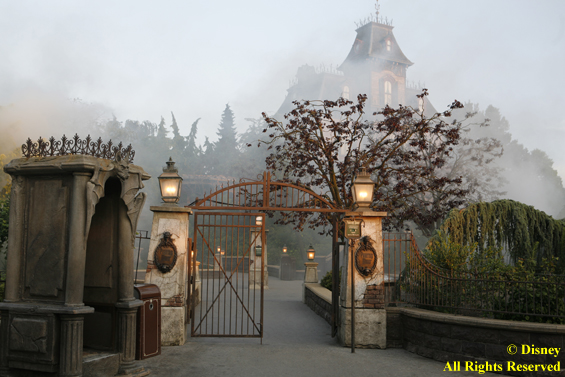
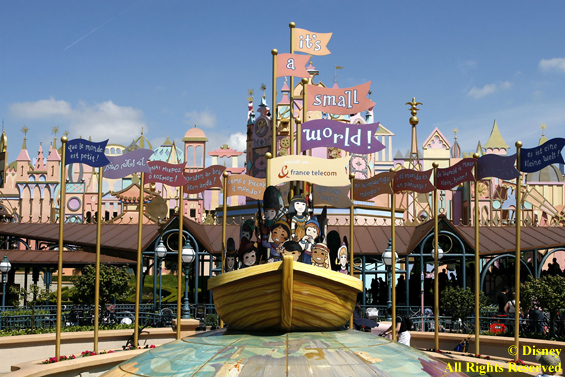
Leave a Reply